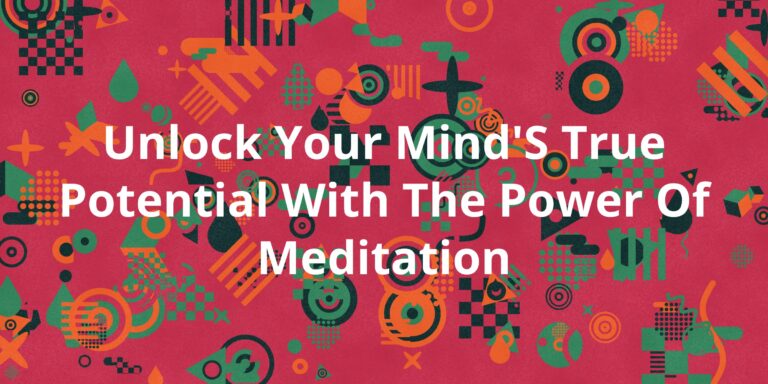Meditation has been practiced for thousands of years as a way to calm the mind, reduce stress, and increase inner peace. But beyond these well-known benefits, meditation can also be an incredibly powerful tool for elevating consciousness and achieving peak performance in all aspects of life.
In this article, we will explore the science behind how meditation can help you elevate your consciousness and achieve peak performance, as well as some practical tips for getting started with meditation and incorporating it into your daily routine.
The Science Behind Meditation and Consciousness
Meditation has been shown to have a number of positive effects on the brain, including increasing gray matter density, reducing stress hormones, and improving cognitive function. These changes can help you feel more relaxed, focused, and centered, which in turn can lead to greater levels of consciousness.
Consciousness refers to your awareness of yourself and the world around you. It is a state of being that is beyond the ordinary thinking mind and is characterized by a sense of inner peace, clarity, and unity with all things.
Meditation has been shown to help increase consciousness by promoting a state of deep relaxation and reducing the activity in the thinking mind. This allows the deeper, more intuitive aspects of the mind to come to the surface, leading to a greater sense of connection with yourself and the world around you.
Practical Tips for Meditating
If you are interested in using meditation as a tool for elevating your consciousness and achieving peak performance, here are some practical tips to get you started:
1. Find a quiet, comfortable place to sit or lie down where you will not be disturbed.
2. Set a timer for 5-10 minutes, gradually increasing the duration as you become more comfortable with the practice.
3. Close your eyes and take a few deep breaths, inhaling deeply through your nose and exhaling slowly through your mouth.
4. Focus on your breath, allowing it to flow naturally without trying to control it.
5. If your mind wanders, gently redirect your attention back to your breath.
6. As you continue to meditate, try to let go of any thoughts or feelings that are causing you stress or tension.
7. When the timer goes off, take a moment to acknowledge your practice and slowly open your eyes.
Incorporating Meditation into Your Daily Routine
Meditation is not a one-time event, but rather a practice that requires regular effort and dedication. To truly reap the benefits of meditation, it is important to make it a daily habit. Here are some tips for incorporating meditation into your daily routine:
1. Choose a specific time each day when you can sit quietly and focus on your breath without interruption.
2. Make meditation a non-negotiable part of your daily routine, just like brushing your teeth or having breakfast.
3. Experiment with different types of meditation to find the one that works best for you, such as mindfulness, loving-kindness, or guided meditation.
4. Consider joining a meditation group or working with a teacher to deepen your practice and gain support along the way.
Conclusion
Meditation is a powerful tool for elevating consciousness and achieving peak performance in all aspects of life. By practicing regularly and incorporating it into your daily routine, you can experience greater levels of inner peace, clarity, and connection with yourself and the world around you. So why not give meditation a try and see how it can transform your life?



